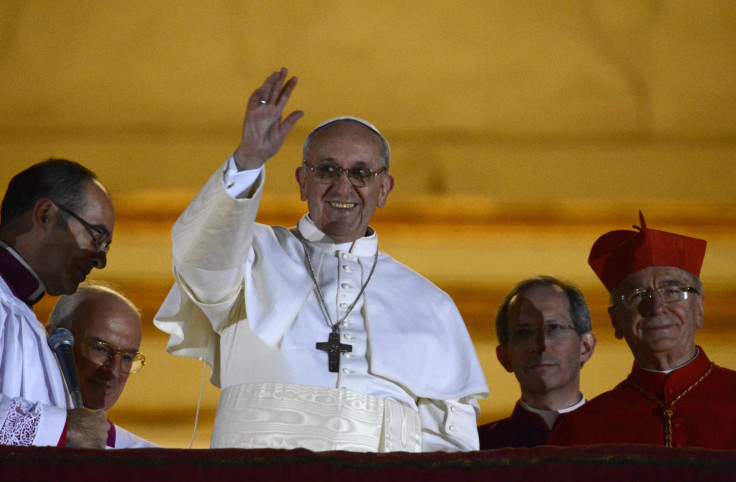What Is A Jesuit? Francis I Becomes First Jesuit Pope When White Smoke Is Emitted From The Vatican

When Jorge Mario Bergoglio was elected the 266th Pope in Rome on Wednesday, he also became the first Jesuit to ever hold the holy position.
Many people began to wonder, “What is a Jesuit?” Though they had heard the term, they might not have known its meaning.
The Jesuit order, also known as the Society of Jesus, is “noted for its educational, missionary and charitable works, once regarded by many as the principal agent of the Counter-Reformation and later a leading force in modernizing the church,” according to the Encyclopedia Britannica.
The opening lines of the Jesuit founding document state that the Society of Jesus came into being to "strive especially for the propagation and defense of the faith and progress of souls in Christian life and doctrine."
Adolfo Nicolas is the Superior General of the order, which is headquartered at the Church of Gesu in Rome.
Controversy surrounded the 472-year-old order during its earlier years, which could be part of the reason Catholics have never had a member for the Society of Jesus as a Pope before.
The Encyclopedia touched on the controversy, saying the members “have always been a controversial group regarded by some as a society to be feared and condemned and by others as the most laudable and esteemed religious order in the Catholic Church.”
Francis I is also the first Pope to be elected who has come from a religious order since 1831.
St. Ignatius Loyola and St. Francis Xavier founded the Society of Jesus in 1534 -- it was made official by a papal document in 1540 --to perform missionary work. The order fervently opposed the Reformation and was periodically persecuted. Since its beginning, the order has been acknowledged for its contributions to education and for its missionary and charity work.
© Copyright IBTimes 2024. All rights reserved.












